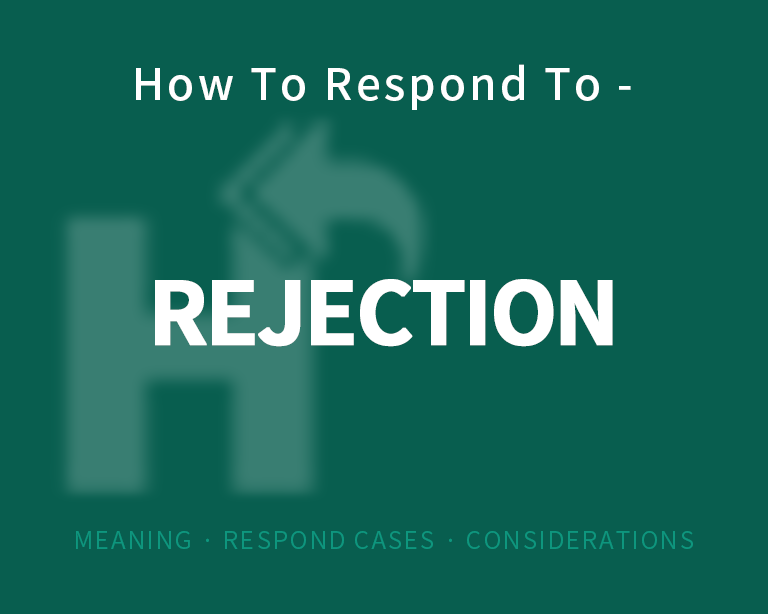The Best Way to Respond to Rejection?

Responding to rejection can be a difficult thing to do, as it requires managing emotions and maintaining a positive attitude. In this article, we will discuss how to respond to rejection in a conversation.
What is Rejection in a Conversation
Rejection is the act of refusing or declining something that has been offered or requested. In a conversation, rejection can be identified by the use of negative language and a focus on the reasons for the decline.
3 Specific Cases of Rejection
Case 1: Job Application
Background: You receive a rejection letter for a job application.
Suitable reply sentence: ""Thank you for letting me know. I appreciate your consideration and I hope that I may be considered for future opportunities.""
Case 2: Romantic Interest
Background: You express interest in someone and they decline.
Suitable reply sentence: ""Thank you for being honest with me. I understand and respect your decision.""
Case 3: Business Proposal
Background: You pitch a business proposal and it is declined.
Suitable reply sentence: ""Thank you for considering my proposal. I understand and appreciate your decision. I hope that we may be able to work together in the future.""
How to Think About Responding to Rejection
When responding to rejection, it is important to manage your emotions and maintain a positive attitude. Understand the reasons for the rejection and acknowledge them respectfully. It is also helpful to offer a brief comment on the potential for future opportunities.
Considerations When Responding to Rejection
When responding to rejection, it is important to respond with respect and positivity. Understand the reasons for the rejection, acknowledge them respectfully, offer a brief comment on the potential for future opportunities, and avoid being defensive, argumentative, or negative in your response.
Conclusion
In conclusion, responding to rejection is an important part of communication, whether it's a personal or professional setting. By managing your emotions, maintaining a positive attitude, understanding the reasons for the rejection, acknowledging them respectfully, offering a brief comment on the potential for future opportunities, and avoiding being defensive, argumentative, or negative in your response, you can respond effectively to rejection. Remember that each rejection is an opportunity to learn and grow. Keep practicing and developing your communication skills, and you will become a master at responding to rejection.